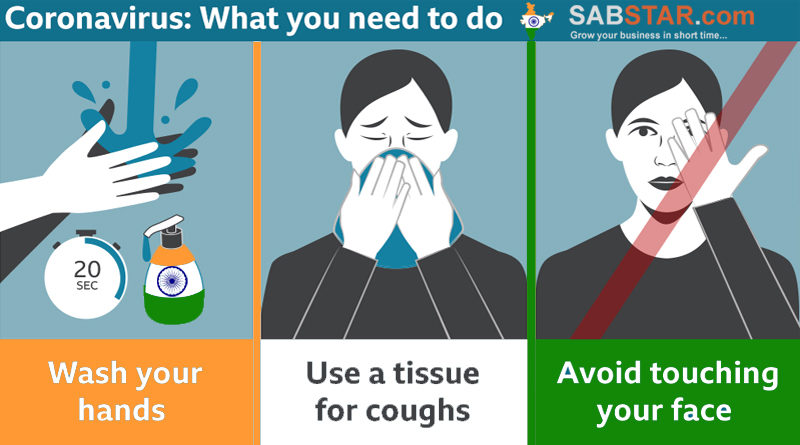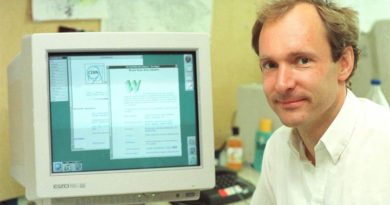जानिए COVID-19 Pandemic lockdown in India क्या हैं Related information
COVID-19 कैसे फैलता है?
How does COVID-19 spread?
डेटा से पता चला है कि यह एक व्यक्ति से दूसरे व्यक्ति के बीच संपर्क में है (लगभग 6 फीट या 2 मीटर के भीतर)। वायरस सांस की बूंदों द्वारा फैलता है जब कोई वायरस खांसी, छींक या बातचीत से संक्रमित होता है।
Data has shown that it spreads from person to person among those in close contact (within about 6 feet, or 2 meters). The virus spreads by respiratory droplets released when someone infected with the virus coughs, sneezes or talks.
COVID-19 के लक्षण क्या हैं?
What are the symptoms of COVID-19?
COVID-19 लक्षण बहुत हल्के से लेकर गंभीर हो सकते हैं। कुछ लोगों में कोई लक्षण नहीं होते हैं। सबसे आम लक्षण बुखार, खांसी और थकान हैं। अन्य लक्षणों में सांस की तकलीफ, मांसपेशियों में दर्द, ठंड लगना, गले में खराश, सिरदर्द, सीने में दर्द और स्वाद या गंध का नुकसान शामिल हो सकते हैं। इस सूची सब समावेशी नहीं है। अन्य कम सामान्य लक्षण भी बताए गए हैं। एक्सपोजर के दो से 14 दिन बाद लक्षण दिखाई दे सकते हैं।
COVID-19 symptoms can be very mild to severe. Some people have no symptoms. The most common symptoms are fever, cough and tiredness. Other symptoms may include shortness of breath, muscle aches, chills, sore throat, headache, chest pain, and loss of taste or smell. This list is not all inclusive. Other less common symptoms have also been reported. Symptoms may appear two to 14 days after exposure.
बीमार होने से बचने के लिए मैं क्या कर सकता हूं?
What can I do to avoid becoming ill?
COVID-19 से बचने के लिए रोग नियंत्रण केंद्र (CDC) इन सावधानियों का पालन करने की सलाह देता है:
बड़ी घटनाओं और सामूहिक समारोहों से बचें।
सार्वजनिक क्षेत्रों में क्लॉथ फेस मास्क पहनें
जो कोई भी बीमार है या उसके लक्षण हैं, करीब संपर्क (6 फीट या 2 मीटर के भीतर) से बचें।
कम से कम 20 सेकंड के लिए अपने हाथों को अक्सर साबुन और पानी से धोएं, या अल्कोहल-आधारित हैंड सैनिटाइज़र का उपयोग करें जिसमें कम से कम 60% अल्कोहल हो।
खांसी या छींक आने पर अपने मुंह और नाक को अपनी कोहनी या एक ऊतक से ढक लें। उपयोग किए गए ऊतक को फेंक दें।
अपनी आंखों, नाक और मुंह को छूने से बचें।
साफ और कीटाणु रहित सतहों को आप अक्सर दैनिक आधार पर स्पर्श करते हैं।
यदि आपके पास एक पुरानी चिकित्सा स्थिति है और गंभीर बीमारी का खतरा अधिक हो सकता है, तो अपने आप को बचाने के अन्य तरीकों के बारे में अपने डॉक्टर से जाँच करें।
The Centers for Disease Control (CDC) recommends following these precautions for avoiding COVID-19:
Avoid large events and mass gatherings.
Wear a cloth face mask in public areas
Avoid close contact (within about 6 feet, or 2 meters) with anyone who is sick or has symptoms.
Wash your hands often with soap and water for at least 20 seconds, or use an alcohol-based hand sanitizer that contains at least 60% alcohol.
Cover your mouth and nose with your elbow or a tissue when you cough or sneeze. Throw away the used tissue.
Avoid touching your eyes, nose and mouth.
Clean and disinfect surfaces you often touch on a daily basis.
If you have a chronic medical condition and may have a higher risk of serious illness, check with your doctor about other ways to protect yourself.
क्या मुझे मास्क पहनना चाहिए?
Should I wear a mask?
सीडीसी सार्वजनिक स्थानों, जैसे कि किराने की दुकान, जहां दूसरों के साथ निकट संपर्क से बचना मुश्किल है, में कपड़े के चेहरे को ढंकने की सलाह देता है। यह विशेष रूप से चल रहे सामुदायिक प्रसार वाले क्षेत्रों में सुझाया गया है। यह अद्यतन सलाह डेटा पर आधारित है, जिसमें दिखाया गया है कि COVID-19 वाले लोग वायरस को प्रसारित करने से पहले ही महसूस कर सकते हैं कि उनके पास यह है। सार्वजनिक रूप से मास्क का उपयोग उन लोगों से प्रसार को कम करने में मदद कर सकता है जिनके पास लक्षण नहीं हैं। जनता के लिए गैर-चिकित्सा कपड़े मास्क की सिफारिश की जाती है। सर्जिकल मास्क और एन -95 श्वासयंत्र कम आपूर्ति में हैं और स्वास्थ्य देखभाल प्रदाताओं के लिए आरक्षित होना चाहिए।
The CDC recommends wearing cloth face coverings in public places, such as the grocery store, where it's difficult to avoid close contact with others. It's especially suggested in areas with ongoing community spread. This updated advice is based on data showing that people with COVID-19 can transmit the virus before they realize they have it. Using masks in public may help reduce the spread from people who don't have symptoms. Non-medical cloth masks are recommended for the public. Surgical masks and N-95 respirators are in short supply and should be reserved for health care providers.
क्या मैं यात्रा कर सकता हूँ?
Can I travel?
If you’re planning to travel, first check for travel advisories. You also may want to talk with your doctor if you have health conditions that make you more susceptible to respiratory infections and complications.
अगर मैं COVID -19 या शायद बीमार हूं तो मैं क्या कर सकता हूं?
If you develop symptoms and you’ve been exposed to the virus COVID-19, contact your doctor for medical advice. If you need to go to the doctor or hospital, call ahead so health care providers can take steps to ensure that others aren’t exposed.
Take the following precautions to avoid spreading the illness:
Stay home from work, school and public areas, except to get medical care.
Avoid taking public transportation if possible.
Wear a mask around other people.
Isolate yourself as much as possible from others in your home.
Use a separate bedroom and bathroom if possible.
Avoid sharing dishes, glasses, bedding and other household items.
Coronavirus Disease 2019 (COVID-19)
Coronavirus disease : What is it and how can I protect myself ?
A new virus called the severe acute respiratory syndrome coronavirus 2 (SARS-CoV-2) was identified as the cause of a disease outbreak that began in China in 2019. The disease is called coronavirus disease 2019 (COVID-19).
In March 2020, the World Health Organization (WHO) declared COVID-19 a pandemic. Public health groups, including the U.S. Centers for Disease Control and Prevention (CDC) and WHO, are monitoring the pandemic and posting updates on their websites. These groups have also issued recommendations for preventing and treating the illness.
Can COVID-19 be prevented or treated?
A vaccine isn't currently available for the coronavirus disease 2019 (COVID-19). No medication is recommended to treat COVID-19. Treatment is directed at relieving symptoms.
Coronavirus disease : What is it and how can I protect myself ?




